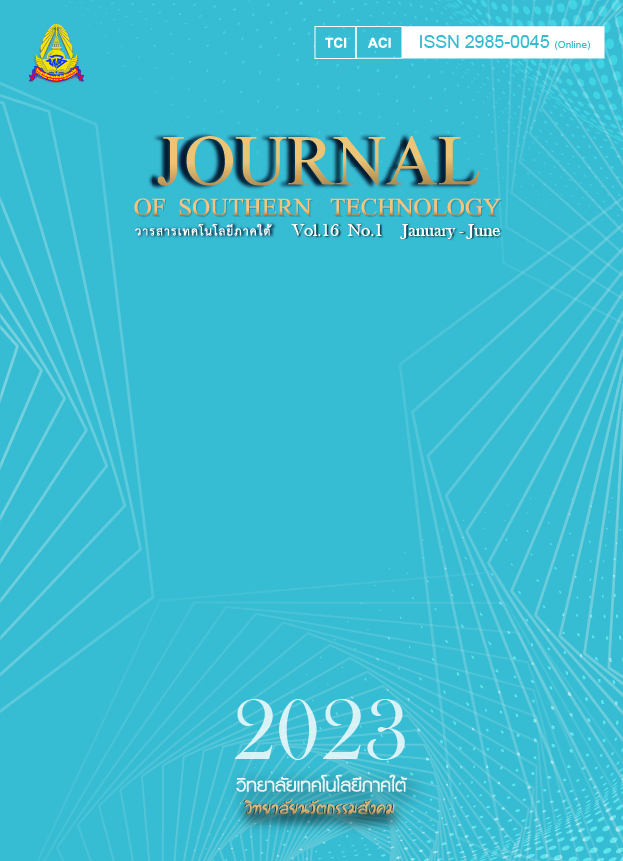Revisiting Flexible Labor: A Case of Freelance Tour Guides under Economic Uncertainty during the Covid-19 Outbreak in Phuket
Main Article Content
Abstract
This study aims to examine the precarious forms of freelance tour guides experiencing economic breakdown, to reconsidering a case of flexible labor, during the COVID-19 outbreak in Phuket. As the major Phuket residents depend their livelihood on and everyday means of support from the travel industry, the emergent measure terminated the dispensable mobility, which brought into a sudden economic downfall to each of individuals. Freelance tour guides are laborers who have generated benefits to other tourism-related businesses and local economy. However, they presently become one of the vulnerable laborers in the collapse of neoliberal tourism system affected by the outbreak. They encountered unemployment instantly after the cease of flight operation and land travel ban. The study is qualitative research and mainly uses ethnographic method by gathering data from interviewing three informants and observing their conversations online during the COVID-19 in March 2020. The results portray the micro perspectives of flexible laborer in the tourism sector, reflecting through the narratives of freelance tour guides experiencing the economic breakdown and blockage of cash flow. They further arise in various informal strategies to deal with the difficult situations and assure the life security, for example, finding alternative sources of income from online sales and family business, relocation for an affordable living, and seeking for network embeddedness. The epidemic does not only infect health conditions, but also perturbs the well-being and transforms the practices of human in economic-driven society.
Article Details

This work is licensed under a Creative Commons Attribution-NonCommercial-NoDerivatives 4.0 International License.
-
Authors must agree to the journal publication rules and allow the editors to edit the manuscripts for publication.
-
Author’s right belongs to the author but Journal of Southern Technology holds the right of first publication and thus allow readers to use the article for the purpose of education but not commercial.
References
Ajanjoe. (2020). Andaman Tour Guides Unite for Mitigating Vulnerable Tour Guides from COVID-19 [Video]. Retrieved 2020, May 21 , from https://youtu.be/JR8lyTWuOoY
Broinowski, A. (2017). Informal Labor, Local Citizens and the Tokyo Electric Fukushima Daiichi Nuclear Crisis: Responses to Neoliberal Disaster Management. In T. Morris-Suzuki & E. J. Soh (Eds.). New Worlds of Below: Informal Life Politics and Grassroots Actions in Twenty-first-century Northeast Asia. Canberra: ANU Press.
Corrado, C. A., & Hulten, C. R. (2015). How do you measure a “Technological Revolution”?American Economic Review, 100(2), 99-104.
Criteria to Register the Remedial Measure from COVID-10 to Get 5,000 Baht. (2020). Prachachat News. Retrieved 2020, March 24, from https://www.prachachat.net/general/news-436894
Department of International Development. (2011). Cash Transfers Evidence Paper. Policy Division. Retrieved from https://www.who.int/ alliance-hpsr/alliancehpsr_dfidevidencepaper.pdf
Dowling, E. (2007). Producing dining experience: measure, subjectivity, and the effective worker. Ephemera: Theory & Politics in Organization, 7(1), 117-138.
Gómez-Encinas, L. (2019). The Neoliberal Tourism System: Strategies of Production and Distribution of Travel. In: Scribano A., Timmermann Lopez F., Korstanje M. (eds) Neoliberalism in Multi-Disciplinary Perspective. Palgrave Macmillan, Cham.
Granovetter, M. (1985). Economic action and social structure: the problem of Embeddedness. American Journal Sociology, 91, 481-493.
International Labour Organization. (2020). COVID-19 and the World of Work: Impact and Policy Responses. Retrieved from https://www.ilo.org/wcmsp5/groups/public/---dgreports/---dcomm/ documents/ briefingnote/wcms_738753.pdf
Kassi, O., & Lehdonvirta, V. (2018). Online labor index: measuring the online gig economy for policy and research. Technological Forecasting & Social Change, 137, 241-248.
Kitirianglarp, K. (2014). Everyone is an artist”: immaterial study of labor. Journal of Sociology and Anthropology, 33(2), 129–158.
Lazzarato, M. (1996). ‘Immaterial Labor’, trans. P. Colilli and E. Emery, in M. Hardt and P. Virno (eds.) Radical Thought in Italy: A Potential Politics. Minneapolis and London: University of Minnesota Press, 133-147.
More 5 Coronavirus Infected Cases Found. (2020). Bangkok Business News. Retrieved 2020, January 31 from https://www. bangkokbiznews. com/news/detail/864516
Phuket and its Challenges. (2020). Longtunman. Retrieved 2020, March 30, from https://www.longtunman.com/21977
Suffering from the Loss of Tourists due to Corona Virus, 7,000 Tour Guides Unemployed. (2020). Post Today News. Retrieved 2020, February 3, from https://www.posttoday.com/social/local/613701
Standing, G. (2016a). The Corruption of Capitalism: Why Rentiers Thrive and Work Does Not Pay. London: Biteback Publishing.
Standing, G. (2016b). The Precariat: The New Dangerous Class. NY: Bloomsbury.
Tovankasame, N. (2018a). Reconsidering Formality and Informality in the Mass-tourism Business: A Case of Phuket, Thailand (Doctoral Dissertation). Graduate School for International Development and Cooperation, Hiroshima University.
Tovankasame, N. (2018b). Reconsidering formality and informality in tourism: a case of Phuket, Thailand. Journal of International Development and Cooperation, 24(1), 61-70.
Urry, J. (2007). Mobilities. MA: Polity Press.
Urry, J., & Larsen, J. (2011). The Tourist Gaze 3.0. London: SAGE.
Wood, A. J., Graham, M., Lehdonvirta, V., & Hjorth, I. (2019). Networked but commodified: the (Dis) embeddedness of digital labour in the gig economy. Sociology, 53(5), 931-950.

